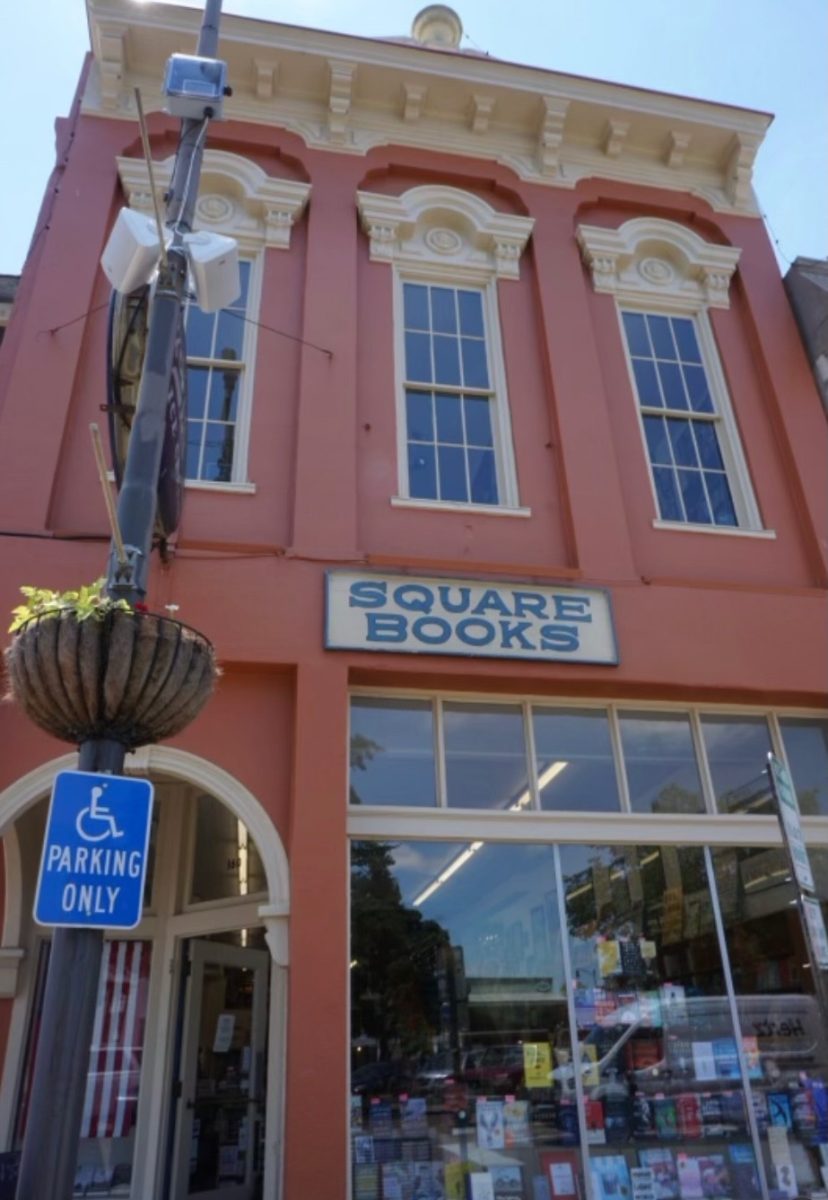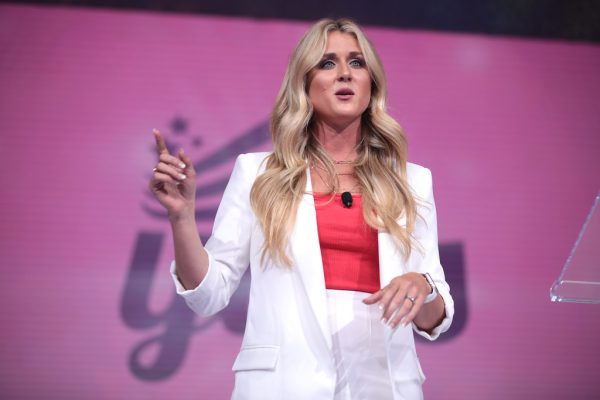Independent Bookstores Remain Valuable Assets to Increasingly Digitized Communities
Square Books (Oxford, Mississippi)
Back in the early spring of 2021, at the very end of a long stay in Houston, Texas, my family and I began the dreaded 12-hour drive back to Chicago. As most kids do, I sat in the back row, staring out of the tinted window at what seemed like an endless expanse of farms and prairies.
After what felt like an eternity, the sun that had made my curious eyes squint for hours began its long-awaited descent. As it fell behind the clumped silhouettes of corn stalks and wheat, I asked, “Where are we staying tonight?” My mother’s gaze fell to her iPhone screen, which displayed a list of hotels in the area. She hesitated. “The only place nearby is in some town called Oxford. I guess we’re staying there,” she said. I leaned my head against the back of my seat just in time to see the bright green exit sign flash by our car. On it, was the word “Oxford” in tall, white letters.
As I stepped out of the hotel the next morning, I sensed that a new energy was present. This town had a “Gilmore Girls” kind of charm, where everyone knew each other, and the peaceful rhythm of each day’s chores sang in harmony with the murmured voices of friendly chats among neighbors and friends. What caught my attention the most, though, was the bookshop. People from all over were flowing in, eagerly awaiting their chance to browse the expansive shelves of literature. I couldn’t believe my eyes.
The name of that place was Square Books, a charming, idyllic bookstore perched proudly on the corner of Oxford, Mississippi’s town square. The founder and current owner of this Eden for readers and writers alike, Richard Howorth, sees it as much more than a labor of love. “This bookstore belongs to the community,” he said. “Mississippi, by almost every standard, is one of the most illiterate states in the U.S.. A lot of the support we get is from people who want to see Square Books be successful. It’s something they’re proud of.”
“Independent bookstores have an inherent advantage over chain ones because the people that work here are engaged members of the community,” Howorth said.
A few years back, during one of the most serious global health emergencies of this generation, the very community that Howorth had served for over 40 years returned the favor. “During COVID-19, we sold twice as many gift cards as we did in the same period the previous year, and that was because people were choosing to support us,” he said. “It was like an interest-free loan from our customers and people did it instinctively. That’s how we got through it.”
In 2020, bookstore sales dropped to concerningly low numbers. Still, since the pandemic, the American Booksellers Association, a trade organization for independent bookstores, has seen a significant increase in the number of new bookstores opening nationwide. In a survey conducted in 2022, The New York Times reported that 70% of all respondents observed a rise in sales since 2019.
This “revival” certainly wasn’t expected for smaller booksellers, who rely heavily on in-person shopping to stay afloat. But to Howorth, this element of bookselling is beautiful. “You can’t get the experience shopping online that you can by walking in the door of one of our bookstores and seeing thousands and thousands of books that are organized quite carefully and placed in such a way that you can find what sort of books you might be interested in and see them all and pick them up and thumb through them and read the jacket copy and see the price right there,” he said. “It’s not like going to the grocery store and getting a carton of eggs and some milk.”
When asked whether Square Books would ever expand outside of Oxford, Howorth emphatically said, “As long as I own it, it’s not going anywhere but here. Square Books wouldn’t exist without Oxford.”
More than 500 miles away from Square Books, and seven miles from my home, another bookshop also gives its community the credit for its success.
57th Street Books, is an independently-owned bookshop nestled within the University of Chicago’s Hyde Park campus, where it has served busy college students, professors, and neighbors for almost 40 years. What’s interesting about 57th Street Books is that it’s owned by its customers, through Chicago’s Seminary Co-op, which anyone can join to be part of a group of members, including the likes of Susan Sontag and Barack Obama.
The atmosphere of the bookstore is not so dissimilar from Latin’s Learning Commons, where students often can be found leaning back in their seats with a good book and engaging in thought-provoking conversations with friends. Much like that mid-morning scene, 57th Street’s warm, cozy atmosphere draws in even the busiest of minds.
Unsurprisingly, the employees there are zealous, almost jubilant, about their jobs. “I missed bookselling and just books,” Fred Tadrowski, a part-time bookseller, said, “I just wanted to come back.” He returned to the industry six years ago, once again drawn to the line of work he loved so much in his 20s. “It’s a great place to work,” he said.
Lisa Dordal, co-author of “Next Time You Come Home,” said, “[Independent bookstores are] super important because [they’re] a way to build community and to publicize my book because, honestly, people don’t know to look for my book on Amazon.”
Dordal wants literary recognition and respect. Although 57th Street Books was only one stop on her tour, she felt that the personal interaction provided by the constant flow of shoppers there brought her a sense of joy and success.
Freshman Emmanuelle Ghiso said, “I wish I had a neighborhood bookstore. It’s actually frustrating to not be able to connect with my community in such a unique way.”
Latin’s neighborhood, Lincoln Park, could certainly benefit from an independent bookstore where students could gather and build their own separate community of readers, writers, and intellectuals. Perhaps this is of greater value than an afternoon visit to Starbucks or Foxtrot.

























































Zach McArthur • Nov 16, 2023 at 7:25 am
Perhaps you will start your own indie bookstore, someday, Pilar! Sounds like a great high school or college job to work in such a place, too. Nice article!